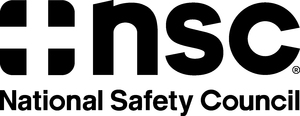National Safety Council warns parents of the 100 deadliest days for teen drivers
Memorial Day kicks off dangerous period as many teens are out of school, free for summer
ITASCA, Ill., May 21, 2014 /PRNewswire-USNewswire/ -- Summer might be a carefree time of the year, but the National Safety Council urges parents not to be carefree about the situations in which they allow their teens to drive. Memorial Day marks the start of a period commonly known as the 100 deadliest days for teens on the roads. From Memorial Day to Labor Day in 2012, nearly 1,000 people were killed in crashes involving teen drivers, according to NSC estimates based on data from the National Highway Traffic Safety Administration. More than 550 of those killed were teens.
Car crashes are the leading cause of death for teens in the U.S., and teens crash at three times the rate of more experienced drivers. Possible reasons for the spike in these crashes include:
- Summer driving tends to be more recreational and not as purposeful, such as driving to see friends rather than driving to school or work
- Teens could be carrying friends more frequently and passengers increase the risk of a fatal crash involving a teen driver by at least 44 percent
- Teens may stay out later at night, when crash risk is higher
- With warmer weather and clearer conditions, teens may be tempted to speed
- More drivers are on the roads. Americans drove more than 780 billion miles between June, July and August in 2013, according to the Federal Highway Administration.
"Putting our teens behind the wheel is the most dangerous thing we do as parents, and summer is an especially deadly time," said Deborah Hersman, president and CEO at NSC. "While state laws allow teens to drive, parents have the opportunity and the obligation to establish ground rules and expected behaviors for safe driving. Parental engagement improves the odds for young drivers returning home over the next 100 days."
Parents are urged to review their state's Graduated Driver Licensing program, which outlines laws that are based on the significant risks of crashes for teens. However, state laws are minimum guidelines and do not represent the best practices for keeping teens safe. Parents should consider doing much more than laws require in order to reduce their teens' exposure to the greatest crash risks. For example, parents are encouraged to establish household driving guidelines – and the consequences for breaking them – in a parent-teen driving agreement. Parents can find all the resources and materials they need at DriveitHOME.org – an online resource developed by the National Safety Council to help parents keep their teen drivers safe.
There are many organizations working at the grassroots level to effect change, too. NSC and The Allstate Foundation established Teen Safe Driving Coalitions in 10 states to help raise awareness, and parents can get involved. For more information about the Coalitions in California, Florida, Maryland, Michigan, New Jersey, New York, Ohio, Pennsylvania, Tennessee or Texas, visit nsc.org/teensafedriving.
About the National Safety Council
Founded in 1913 and chartered by Congress, the National Safety Council, nsc.org, is a nonprofit organization whose mission is to save lives by preventing injuries and deaths at work, in homes and communities, and on the road through leadership, research, education and advocacy. NSC advances this mission by partnering with businesses, government agencies, elected officials and the public in areas where we can make the most impact – distracted driving, teen driving, workplace safety, prescription drug overdoses and Safe Communities.
Connect with NSC:
Facebook
Twitter
LinkedIn
YouTube
Video - http://origin-qps.onstreammedia.com/origin/multivu_archive/PRNA/ENR/90093-NSC-Action-Sketch---All-logos.mp4
Photo - http://photos.prnewswire.com/prnh/20140521/90087
Photo - http://photos.prnewswire.com/prnh/20130530/MM23334-b
SOURCE National Safety Council
WANT YOUR COMPANY'S NEWS FEATURED ON PRNEWSWIRE.COM?
Newsrooms &
Influencers
Digital Media
Outlets
Journalists
Opted In



Share this article